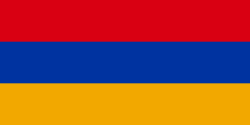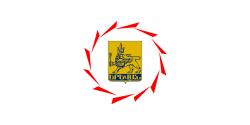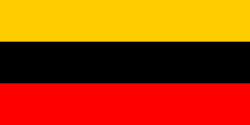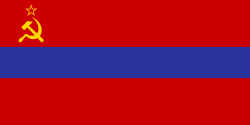This article comprises a list of flags associated with the history and country of Armenia, including misattributed flags and proposals.
Contents
- National flags
- President's flag
- Military flags
- Municipalities and cities
- Present
- Historical
- Political flags
- Religious flags
- Historical flags
- Misattributed and fictional
- Flag Proposals
- Armenian people in other countries
- See also
- References

Wikimedia Commons has media related to Flags of Armenia .

































































